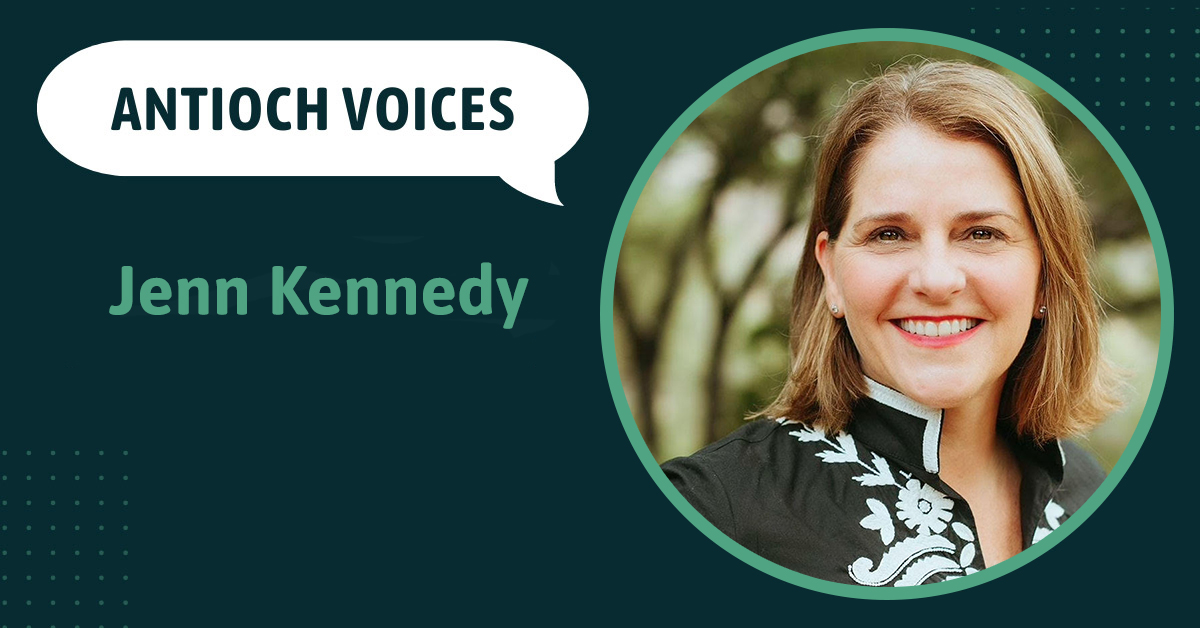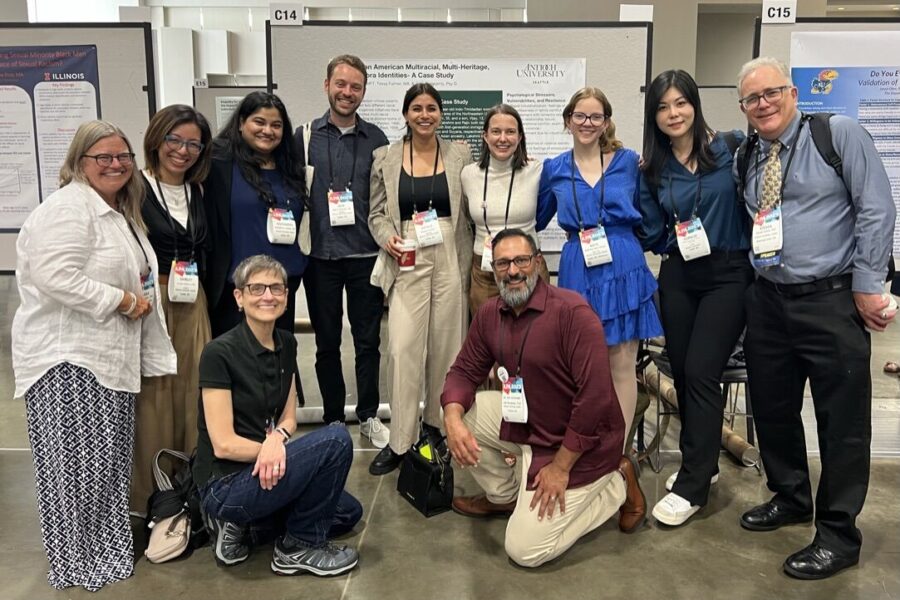This essay is part of Antioch Voices, a forum for Antiochians to speak out about issues important to them. Opinions expressed here belong to the author alone and do not necessarily reflect the official position of Antioch University. If you’d like to share your own voice, the first step is to send a short description of what you are planning to write about to [email protected].
I returned to graduate school at age 40 to pursue a career as a therapist. It has always been a secret desire of mine, and when I unexpectedly lost my mother, I decided that this was the time to do everything I’ve always wanted to do. I knew returning to academia as an older adult would be challenging in various ways; however, it was undoubtedly the best decision. As it turned out, my lived experience was extremely helpful during school and in my subsequent career as a therapist and private group practice owner. I was focused and disciplined, but I had perspective from navigating various work and intimate relationships in my 20s and 30s.
My intention in pursuing the MACP was always to see couples. I had done plenty of couples therapy myself, and I knew this was what would light me up professionally. During my training, I thrived on the complicated interpersonal dynamics of couples’ work: tense, time-limited, often palpable resentment, and plenty of unspoken wants. Soon, I recognized a lack of information or comfort on the part of both clients and other clinicians to talk about sex. Initially, I did a 15-hour training to become more literate. This only whetted my appetite, and I decided to pursue a full PhD in Sexology. I wanted to differentiate myself and to really help the couples that came into my office, hoping to address the erotic realm. Often couples came for help with low desire. For the heterosexual couples, the low desire was often expressed by the female partner.
Additionally, my other specialty has always been supporting queer clients. I interned at Pacific Pride Foundation, our local LGBT agency, and consider myself not just an ally but an activist over the years. I came out at age 19 and have navigated that process repeatedly for the last three decades. I see how the queer community is also consistently neglected in research, and therefore our clinical guidance is limited. Pairing my passions, my PhD dissertation was a systematic review of the literature—with a focus on best practices for clinicians doing sex therapy with lesbians.
In order to do this work, I reviewed all studies about women’s sexuality, queer psychotherapy, sex therapy with all populations, and anything we know about lesbians as a population. There was minimal research focused on women and almost none on lesbians. Here are the highlights of my literature review:
Women’s sexuality is most affected by the following factors: body image, family of origin and culture, attachment history, trauma history, physical ability, age, relationship to self and to pleasure. These are familiar elements of any case conceptualization; however, they are particularly pointiest when talking about sexuality with a woman. Her sex life cannot be considered in a vacuum, but rather, her age, history, family dynamics, experiences, and temperament must be factored in.
In addition to the issues that affect all women, lesbians, as a marginalized population, have additional stressors and considerations that impact their sexuality. These include the following:
Social Stigma: Lesbians face numerous unique societal and cultural challenges with the combination of both homophobia – fear, dislike, and prejudice against lesbian identities – as well as heterosexism, where society sees heterosexuality as the default, preferred, or “normal identity.” Lesbian sexuality is both fetishized and dismissed as “not real sex.”
Coming Out: Coming out is a unique developmental milestone for LGB individuals and is far from being a singular event – more likely a long process. Vivienne Cass identifies six common stages of development in the homosexual identity formation: confusion, comparison, tolerance, acceptance, pride, and synthesis. In therapy with queer clients, we meet them where they are in their coming-out journey—which often is not a neat, linear path through these stages.
Power Dynamics: Role negotiation invariably arises with lesbian couples. Society has a heterosexist expectation of an active male and passive female, so when both partners are female, they must verbally or nonverbally assign roles and negotiate sexual initiation, relationship duties, and the power balance. Complementarity reflects how the couple’s characteristics are different but interrelated. Each partner may be attracted to or aroused by different things, but it may be complementary to what their partner wants. Lesbian sex requires a greater degree of interaction, role differentiation, and coordination of behaviors and desires than most areas of a couple’s life. We as clinicians cannot assume the roles or responsibilities held by lesbian couple clients—in or out of the bedroom. Rather, they need to inquire and stay open to a fluid, intricate system co-created by the clients. While lesbians value fairness and equality, they may also be drawn to partnerships with power differentials. That does not mean that either partner holds all power in all areas, but rather, they likely share power in various contexts.
Sex versus Intimacy: Lesbians tend to prioritize intimacy over sexuality, and same-sex female couples take more time having sex and include whole-body contact. Lesbians consistently reported higher levels of satisfaction with their sexual experiences. Lesbians also report longer lovemaking sessions compared to other couples, so the conversation starts to shift toward quality versus quantity. Researchers found lesbians (versus heterosexual women) rated giving versus receiving sexual activity as desirable and led to higher levels of satisfaction. Lesbian sexuality has greater fluidity than male same-sex sexuality—meaning it’s particularly sensitive to situational, interpersonal, and contextual factors.
Additionally, as clinicians working with queer women, we ideally should also have awareness and understanding of the following: knowledge of queer history; knowledge of the social stigma attached to a queer identity; awareness of our own bias; awareness of clinician countertransference; awareness of privilege and oppression of minorities; understanding of the mechanics of sex between two women; signaling on the part of the clinician as to the comfort regarding the topic of sex in the clinical space.
Fortunately, the field of knowledge is growing, and we are starting to see more representation of queer women in research. In parallel to what we know from research, I’m continuing to form my own theories in the therapy realm with my clients. I see the field as wide open and ripe for contribution.

Jenn Kennedy
Jenn Kennedy, PhD, LMFT, CSAT, is a Marriage and Family Therapist based in Santa Barbara. She specializes in couples, sex therapy and LGBT. She is a certified sex therapist, certified sex addiction therapist, and she is trained in EMDR. Kennedy has taught in the graduate school at Antioch University Santa Barbara. Kennedy runs a group private practice called Riviera Therapy. She also podcasts, writes and runs small groups for women wanting a better Sex Life through Pleasure Project. She has been quoted in Allure, Forbes Health, Reader’s Digest, Parade, and Yahoo! Life. Reach Kennedy at [email protected].




